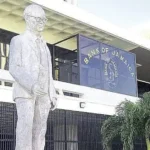SAN DIEGO — This year’s Independence Day parties rang hollow for many Haitian-Americans who see the holiday’s fanfare clashing with a stark reality at the nation’s borders.
Speaking from California, Guerline Jozef of the Haitian Bridge Alliance dismissed the fireworks as “confetti masking a crisis.” She accused federal authorities of maintaining a “selective welcome mat” that detains or expels Black and Brown asylum-seekers even as white South Africans receive expedited entry on claims of persecution. “Freedom isn’t freedom if it stops at immigration checkpoints,” Jozef declared, calling on Washington to replace travel bans with consistent, rights-based policy.
On the opposite coast, Brooklyn Assemblymember Rodneyse Bichotte Hermelyn urged Americans to remember that July 4 is a starting point, not a finished product. The Declaration’s pledges of equality were, she noted, “ink on parchment—promises that still demand a daily down-payment in courage and legislation.” She faulted today’s “political trench warfare” for stalling voting-rights bills, gun-safety reforms, and immigrant-protection measures.
Brooklyn City Council Member Farah N. Louis echoed that frustration, warning that proposed federal cuts to Medicaid would “pull the rug from under a million New Yorkers while shouting ‘liberty for all.’” For her, patriotism means safeguarding hospital budgets, neighborhood clinics, and social-service dollars—essentials she said are disproportionately critical to immigrant districts.
Three themes threaded the advocates’ statements:
- Policy must match principle. All three leaders argued that celebrating 1776 is meaningless if modern law still “grades freedom on a curve,” in Jozef’s words.
- Immigration remains America’s unfinished homework. They pointed to the continued use of rapid expulsions, overcrowded detention centers, and what Louis called “budgetary body-blows” to immigrant communities.
- Shared history should guide shared progress. Jozef reminded listeners that Haiti, the second independent republic in the Western Hemisphere, gained its freedom in 1804—proof, she said, that Black self-determination is woven into the hemisphere’s DNA.
As grills cooled and parades dispersed, these Haitian-American voices insisted the real fireworks begin now—in the hearing rooms, courtrooms, and committee chambers where the meaning of liberty is negotiated for the next generation.






